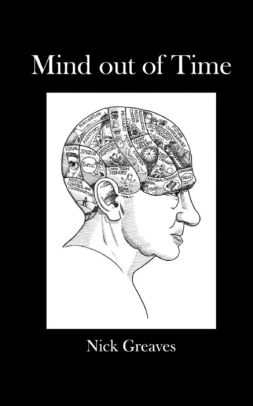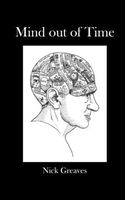- Welcome to FictionDB, Guest
- | My Account
- | Help

Mind out of Time — Nick Greaves
The characters in ‘Mind out of Time' seek answers to the last major problem that has remained unresolved far too long. Despite the huge advances in scientific knowledge and technology made over the 20th century, the explanation of the mechanism of the mind is still as elusive as it was at the end of the 19th century. The science elite of today have spent many billions of Government funds on research to extract a final answer to everything which a number of physicists and philosophers seem to consider close at hand, despite the fact that they still have no inkling of the mechanism behind the operation of memory and intuition which appears to have little if anything to do with existing computer technology. Without some new principle on which to base the workings of mind and memory, there is little chance of a solution to this perennial problem. Alfred had taken time away from a venal and tedious job as a commercial property surveyor working on huge office development schemes in the West end of London. His intention was to write a novel about an individual who transfers himself back through time to become his great grandfather to the power of five with interesting consequences for his descendants. When suffering from writer's block, to fill in time he decides on a course of self education in the Reading Room of the British Museum on a number of subjects about which he knows little. In doing so, almost aimlessly he attempts a quasi scientific explanation of sorts for this time transference process. He comes up with a rationale loosely based on principles of physics and quantum entanglement, which seems just about plausible, in as far as his limited knowledge of physics allows. The novel is never completed and he returns back to routine office life as a development surveyor. A little later a very competent academic biochemist produces a surprise and controversial best seller, very similar to Alfred's thesis, and which revitalises his interest. Quite some years later whilst attending a conference on physics and spirituality, he by chance meets Lucius, a wealthy entrepreneur with an interest in the unascertained powers of the mind, and he realises here is a chance to persuade this multimillionaire to provide funding for an experiment he has in mind. If successful, Alfred considers it would provide a proof for his theory of how information is transferred through time, and hence a mechanism for memory. That in turn could lead to the development of artificial intelligence and a few other spin off phenomena besides. Perhaps he could persuade Lucius of the potential success of such an experiment by describing what the implications and results might be.The first part of this book is based on a fair amount of personal experience of the author and the second part is fiction but not necessarily beyond the bounds of possibility, as indicated by references to research carried out in the last few decades and in particular to that of Rupert Sheldrake.
Genres
Click on any of the links above to see more books like this one.

